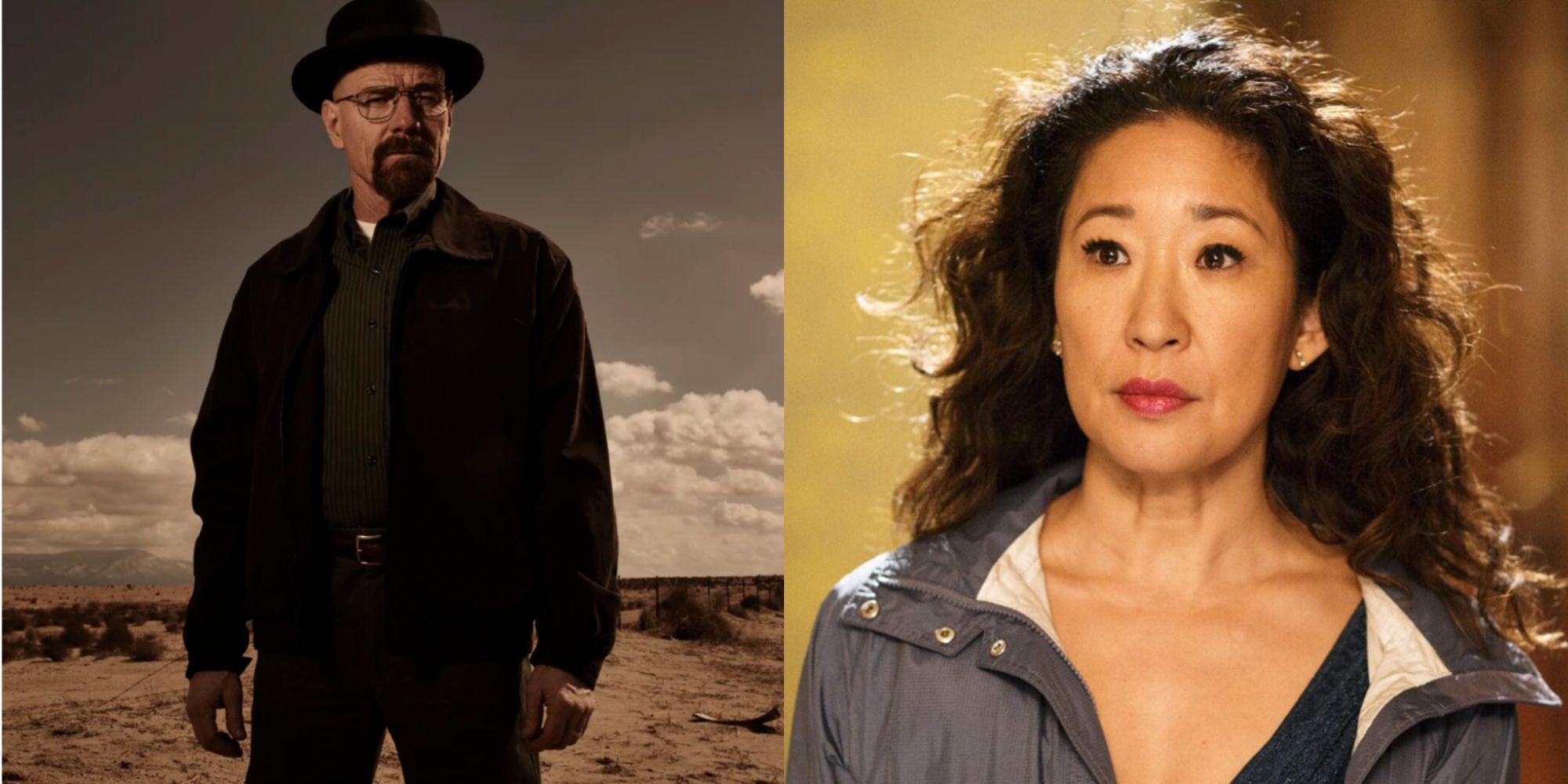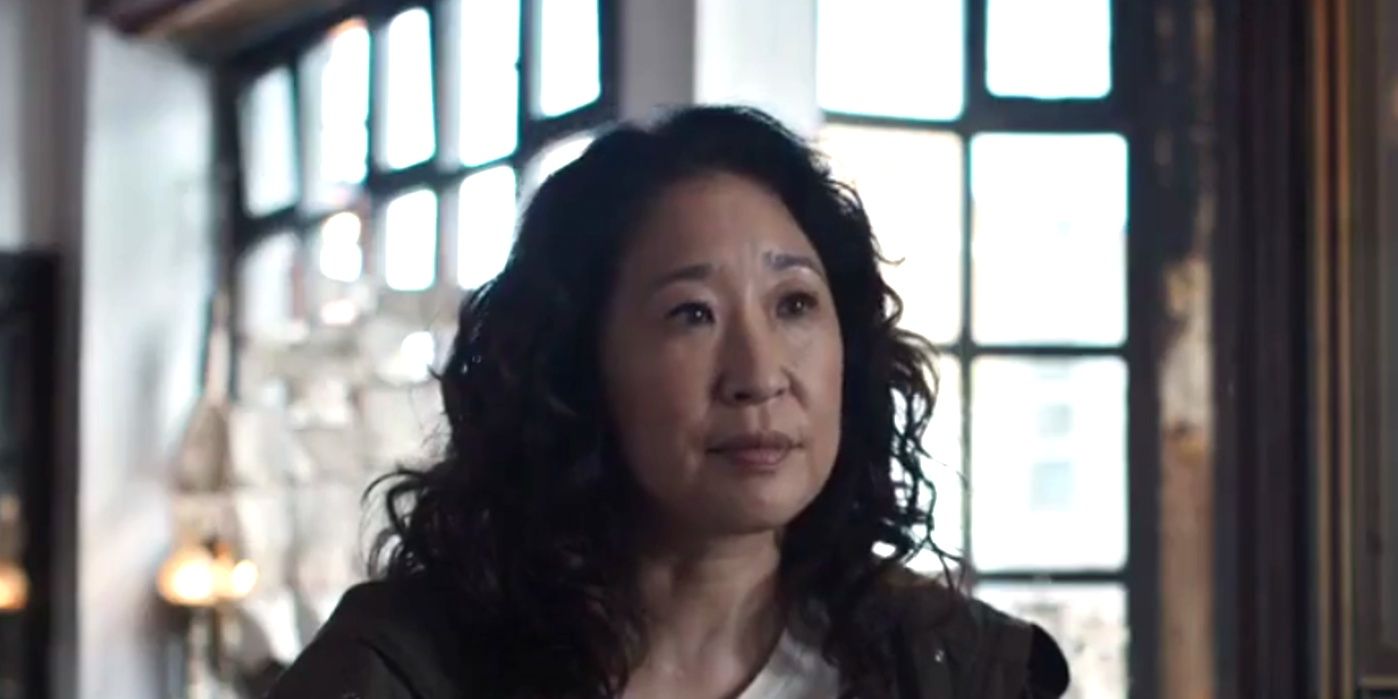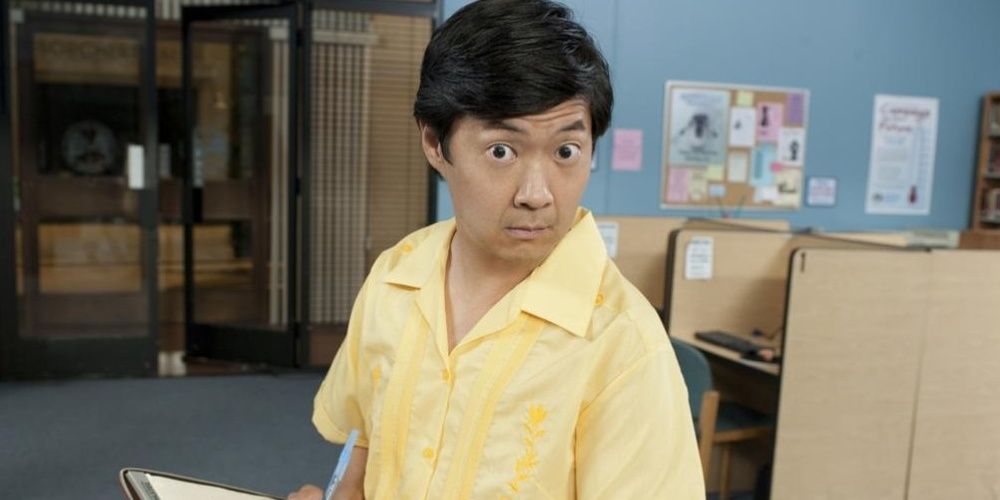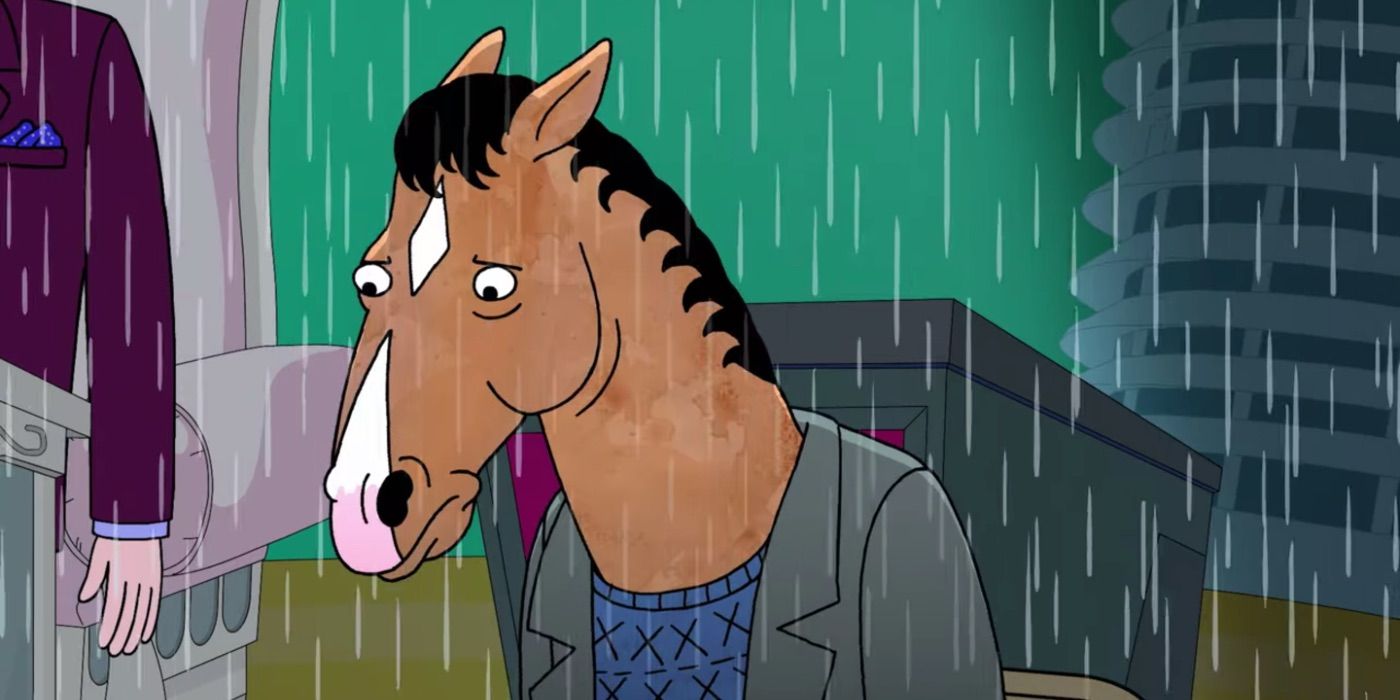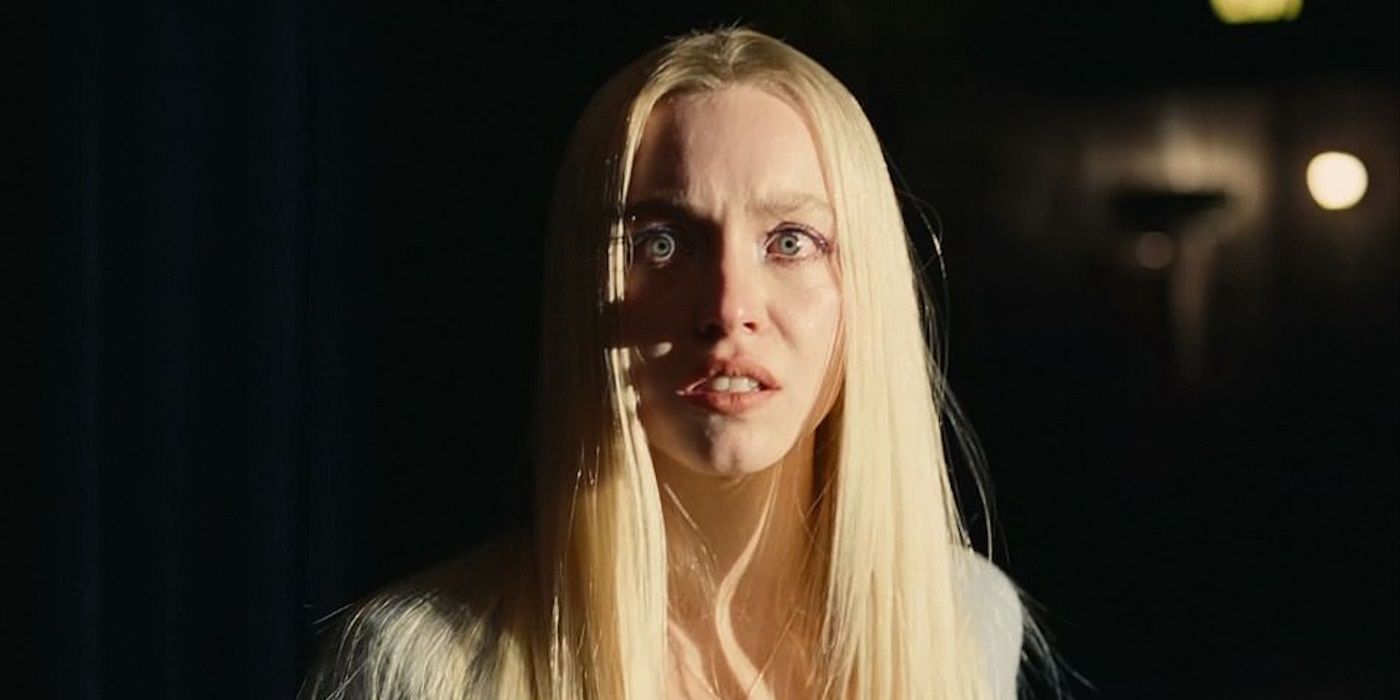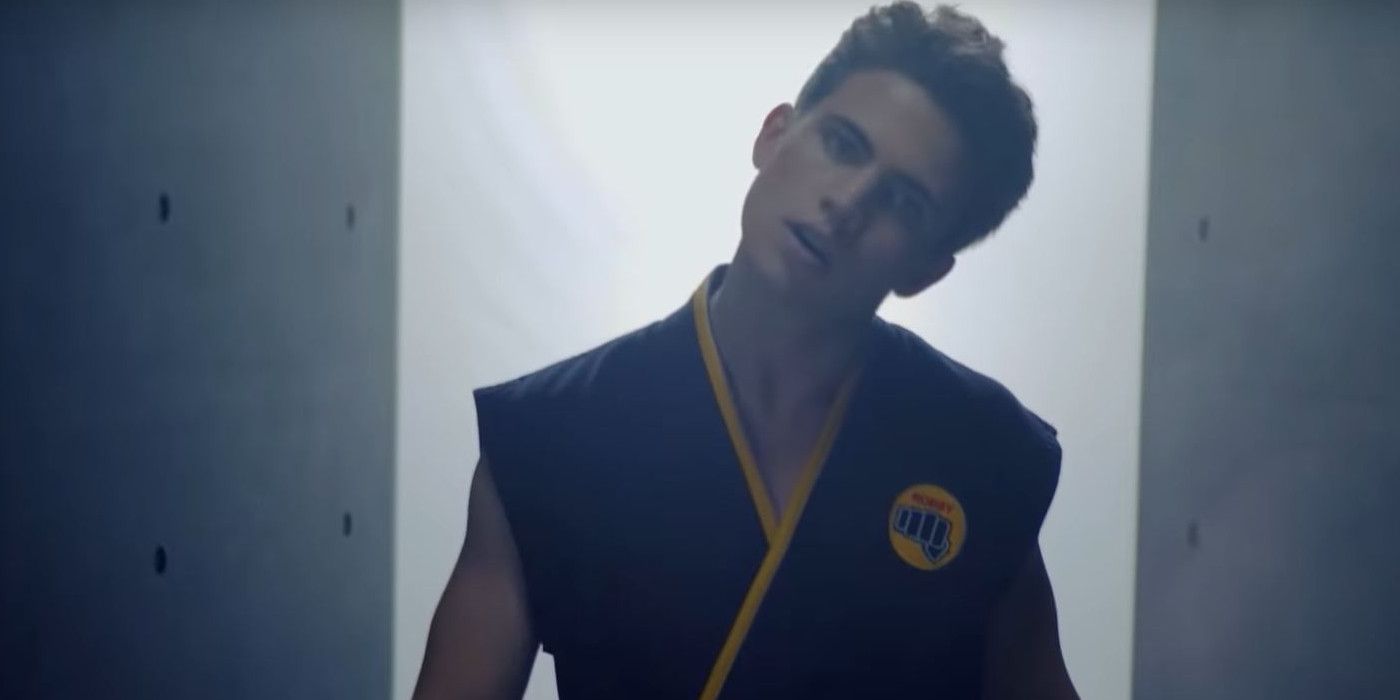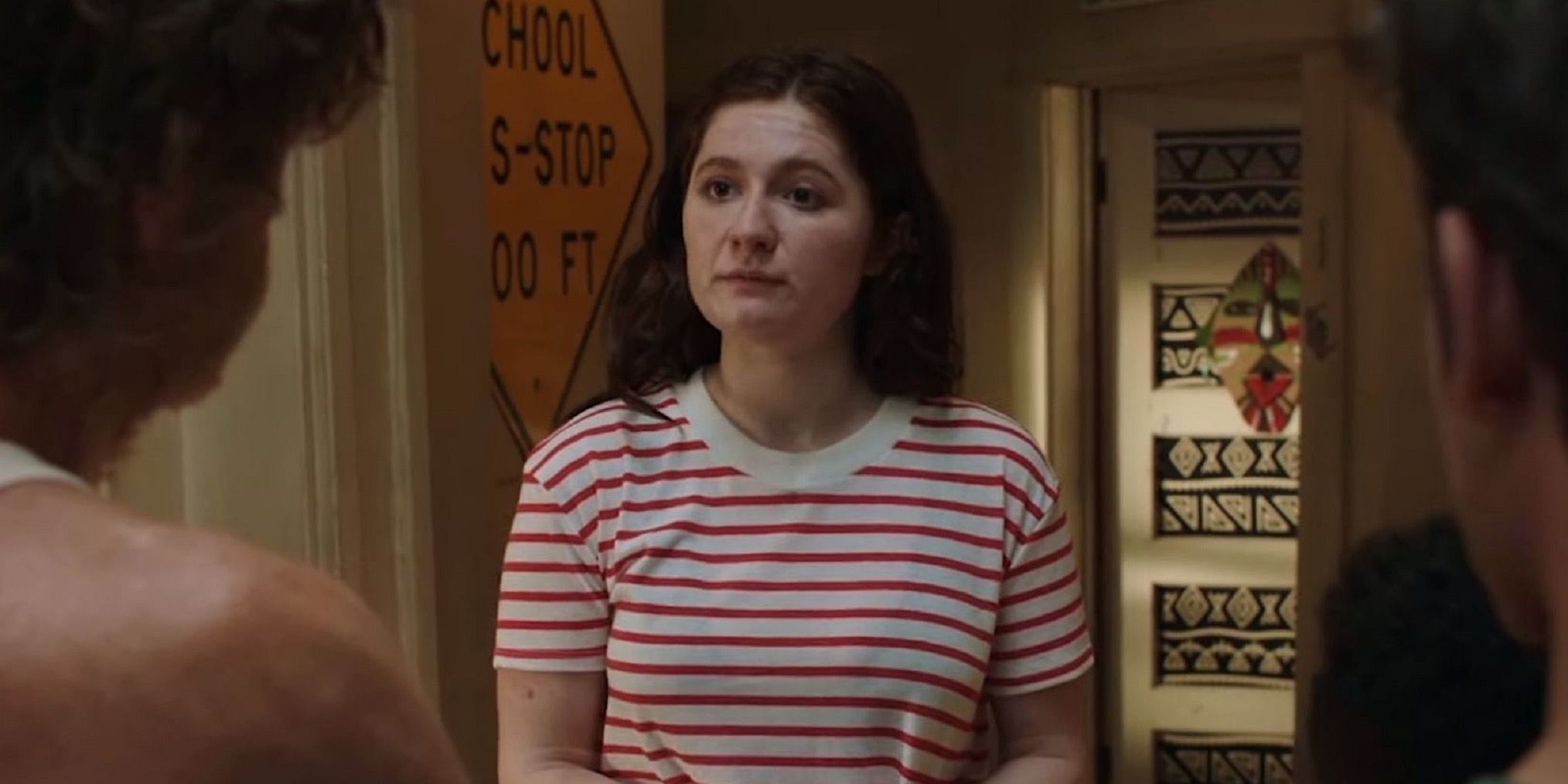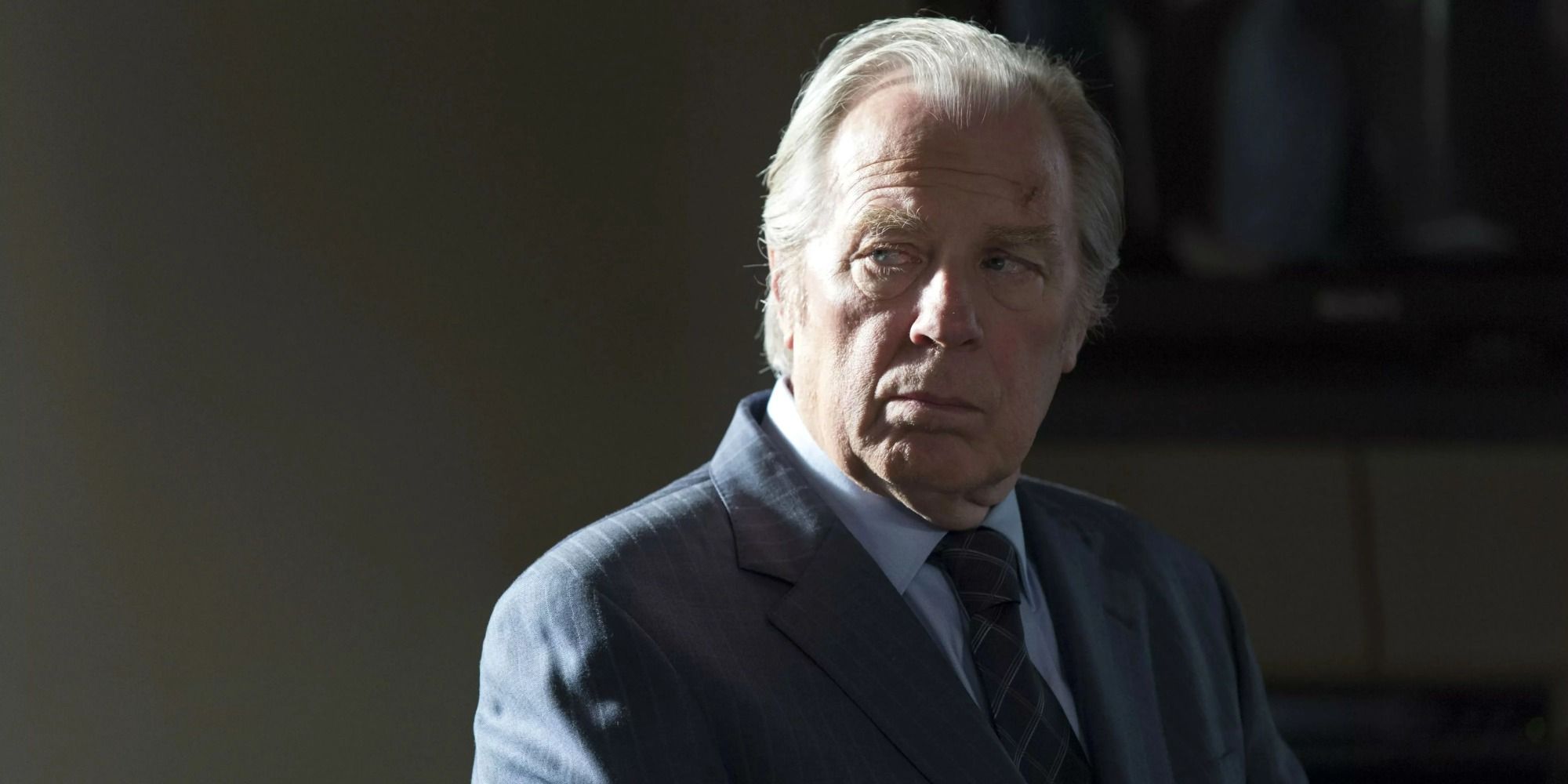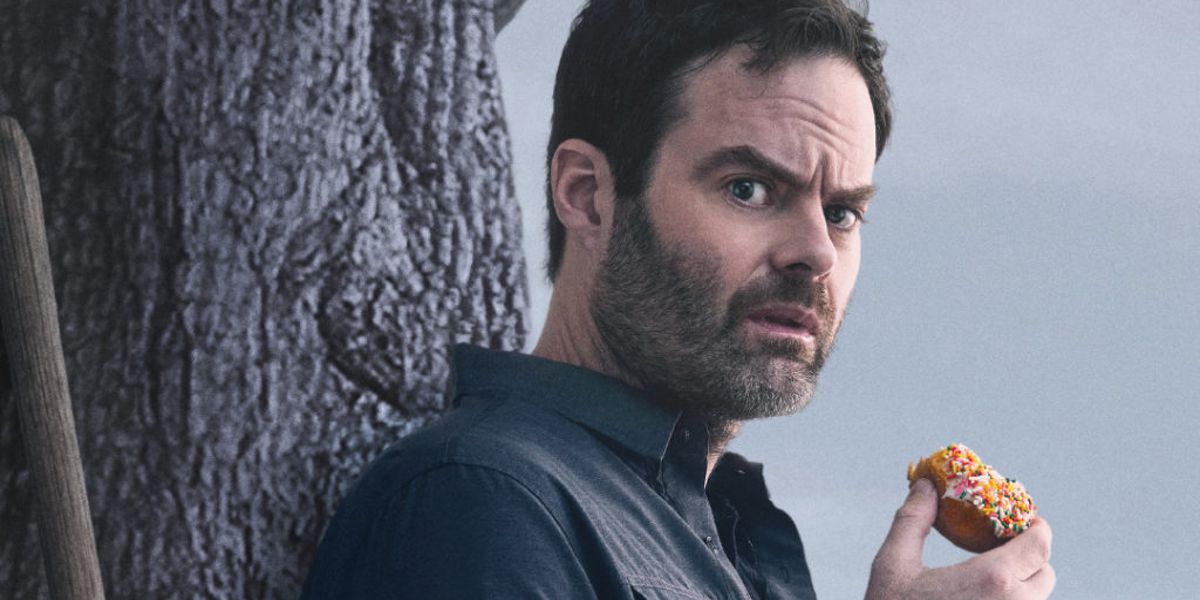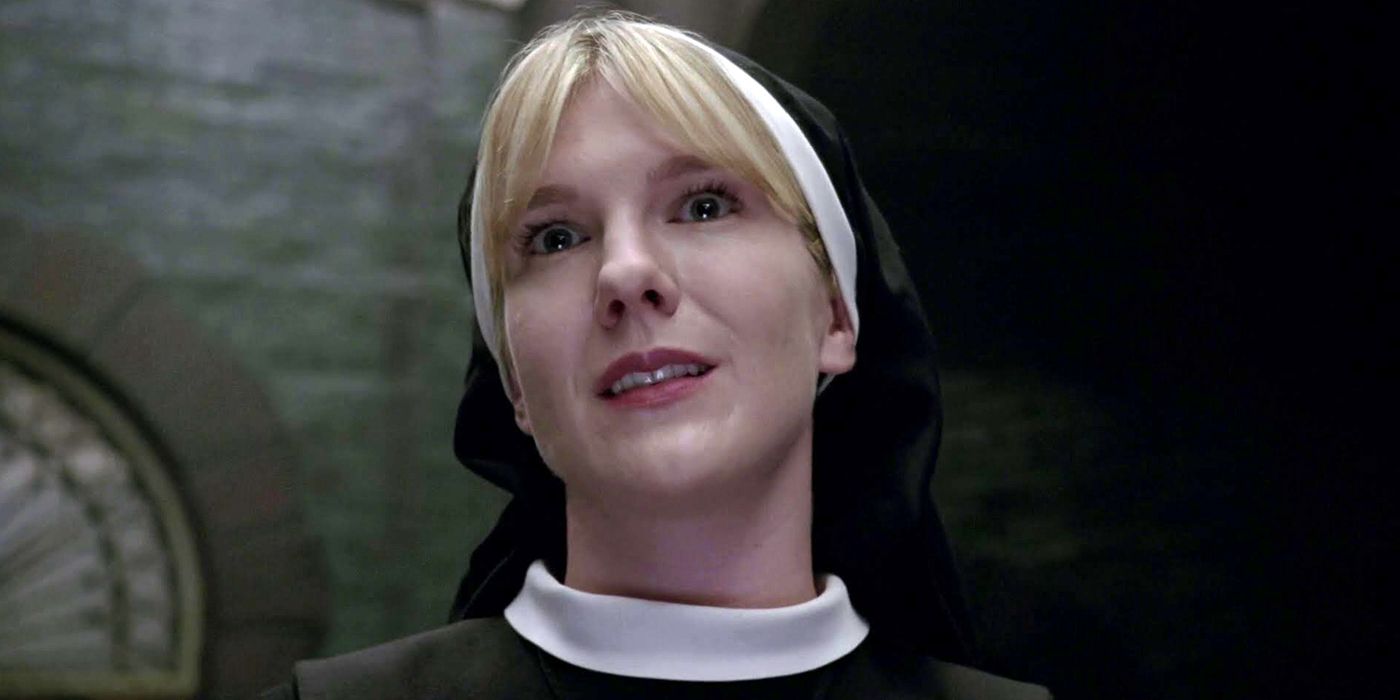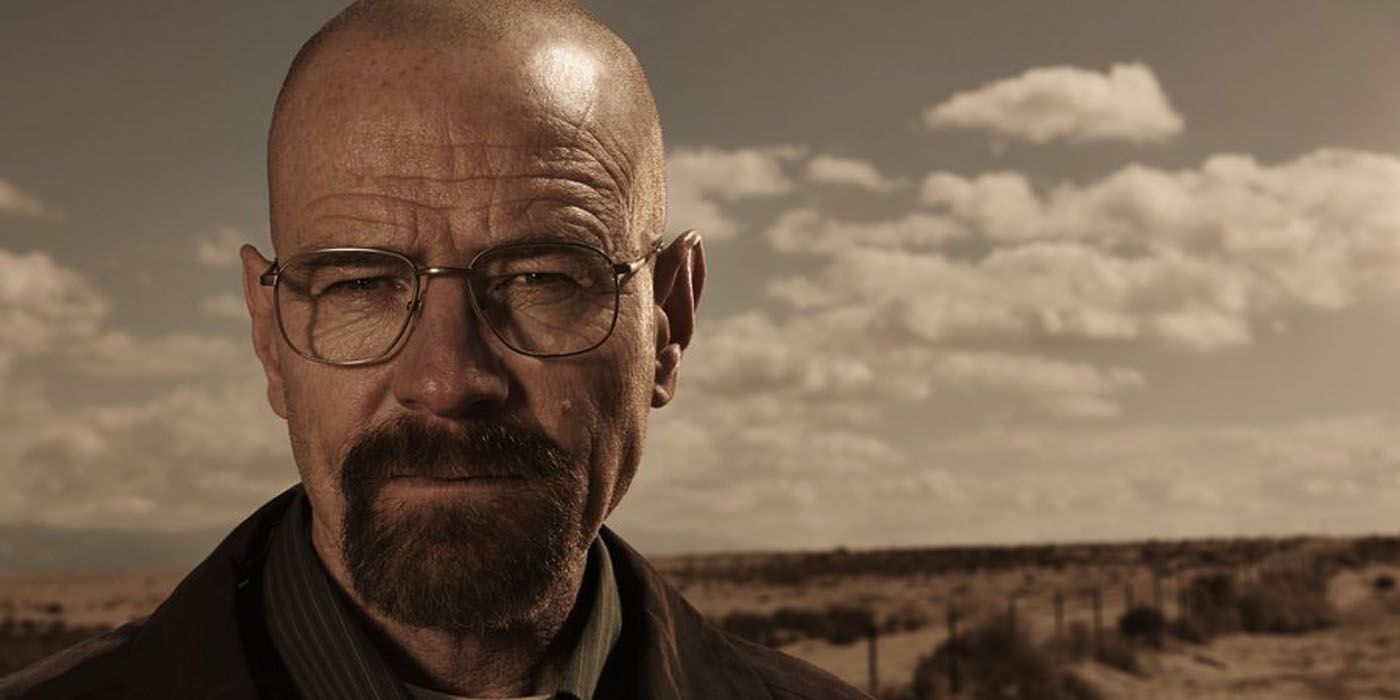With Better Call Saul's sixth season earning a 100% on Rotten Tomatoes before it's even over, audiences are becoming more addicted than ever to unlikeable protagonists. Even more interesting is a character who, at some point in their journey, turns bad.
It's compelling to watch a character break bad because it reminds viewers that everyone is capable of giving in to the innate urge to be self-serving and act in ways that aren't deemed appropriate by society. Some of the most terrifying, chaotic, and entertaining characters are those who gave into those urges and broke bad.
Eve Polastri: Killing Eve
Killing Eve follows the main character, Eve Polastri, a spy with a fascination with female assassins. When she and the international assassin, Villanelle, cross paths, they become intertwined as both of them become obsessed with knowing and understanding the other. Eve's obsession with Villanelle takes over her marriage and all other relationships, turning her from a careful, hard-working woman into a spy who would do anything to satiate her own curiosity.
Eve had everything: the big career, good friends, and a healthy marriage. But there was something inside her that always wanted more, and she allowed that part of her to dominate all the good in her life. Her transformation from balanced to obsessed demonstrates how every person has the ability to break bad if they let their obsessions become the only important thing in life.
Ben Chang: Community
Ben enters Community as a hilarious, over-the-top Spanish teacher. Señor Chang is witty, although a little bizarre, but serves as nothing more than comedic relief. By season three, Ben fully transitioned from a quirky, funny character, to an evil tyrant and agent of chaos, who became the leader of a violent riot.
Ben's version of breaking bad demonstrates how it doesn't always have to result in lasting emotional or physical damage. Ben certainly became a character with worse morals than he had at the start, but his breaking bad was more for a plot device than for any real character arch.
Bojack Horseman: Bojack Horseman
Bojack Horseman follows the life and career of its titular character as he navigates living in Hollywood after being a beloved star in a popular '90s sitcom. Audiences watch as he grows more jaded and tries desperately to avoid being called "washed up" and a "has been," which results in Bojack doing some villainous things throughout the series.
Bojack's devolution is an example of how emotionally demanding the TV and film industry is. Even though Bojack had some childhood trauma that shaped him into the adult he became, he might not have broken bad had he not felt pressure to stay relevant in the industry. Because of his difficulty in making a meaningful career after his show ended, he enters a depression where he turns to drugs, alcohol, and sex, which provides a sad, yet all too common, commentary on life as a star.
Cassie Howard: Euphoria
In season one of Euphoria, Cassie is devoted and loyal, especially to her best friend Maddy. In season two, Cassie falls in love with Maddy's abusive ex-boyfriend, Nate. Cassie chooses to commit to a toxic relationship with Nate over her friend and continues to spiral into a bad friend and agent of chaos in the plot.
Even though Cassie made all of her own choices in leaving her friendship behind, her decision was heavily influenced by Nate's manipulative behavior. This goes to show that sometimes a person is influenced by abuse to break bad and that they can be manipulated into doing harmful things. Cassie was severely confused about her relationship with Nate for the entire season and had he not consistently strung her along, she might never have broken bad at all.
Robby Keene: Cobra Kai
Season one Robby started out as a troubled teen dealing with an absent father, Johnny, and an inattentive mother. He discovers karate and falls in love with the sport, using it as a way to channel his anger. But when he ends up in juvie after almost fatally injuring one of Johnny's students, Robby becomes hellbent on fighting and seeking revenge on his father's dojo.
Breaking bad isn't always a polarity of good and evil. Robby is incredibly nuanced. While he is violent and aggressive towards anyone he deems to be a threat, he shows kindness and compassion to his friends and those that consider him a mentor. This shows that just because someone broke bad doesn't automatically make them a bad person in all aspects of their life.
Debbie Gallagher: Shameless
Shameless tells the story of a large family living in an impoverished part of Chicago. Debbie, one of the youngest in the family, began as an adorable little girl who would do anything to help her siblings. As Debbie grew, she became a villain, lying and manipulating to achieve her goals.
Debbie's breaking bad is complicated because there was never a distinctive moment where she went from lovable child to scheming adult. Her transformation seems to be the result of lasting childhood trauma. Debbie seemed to learn that good things don't just happen, and the only way she could get what she wanted was to take advantage of others. This shows that breaking bad is not always a conscious decision that someone makes in order to achieve their own goals, but sometimes a transformation that's necessary to survival.
Chuck McGill: Better Call Saul
In Better Call Saul, the once prolific and successful lawyer Chuck McGill develops a mental condition in which he becomes housebound. As the show progresses, audiences learn the ways in which Chuck manipulated and took advantage of his brother, Jimmy.
Chuck's version of breaking bad is unconventional in that he was never necessarily good, but was first portrayed as passive and weak. He breaks bad as he reveals his hatred for Jimmy and the ways he secretly sabotaged his brother's career and his relationships. This is one of the most realistic versions of breaking bad because it shows how there doesn't have to be a polar switch from good to evil in order for someone to break bad. Sometimes all it takes is someone showing their true colors for others to realize that they have been bad all along.
Barry Berkman: Barry
Barry follows the titular character Barry Berkman as he moves to Los Angeles to complete a job as a hitman. While there, he realizes his deep love and passion for acting. Audiences watch as seasons one and two Barry, who's morally conflicted about being a hitman, devolves into season three Barry, who does some of the worst things to anyone believed to be a threat.
Barry's example of breaking bad demonstrates the toll that keeping secrets has on someone. As soon as a character knows Barry is a hitman, he kills them to protect his secret. If he took ownership of his actions and accepted the consequences of his crimes, he wouldn't have entered the vicious cycle of killing more and more people, which forced him into a constant state of paranoia.
Sister Mary Eunice: American Horror Story: Asylum
Sister Mary Eunice starts out as a young, meek, innocent nun, who is known for her gentle nature and her love of God above all else. When she becomes possessed during an exorcism, she turns into a sadist, murderer, and rapist.
Sister Mary Eunice's breaking bad demonstrates how sometimes someone can lose their humanity by being in the wrong place at the wrong time. She was an extreme caricature of each end of the spectrum: from very devout and pure to literally evil and manipulative. Had Mary Eunice not been in the room during the exorcism, she never would've broken bad.
Walter White: Breaking Bad
Walter White is originally presented to audiences as a humble and passive high school chemistry teacher, who struggles financially to take care of his pregnant wife and teenage son. When he receives a cancer diagnosis, Walt teams up with a former student to cook and sell methamphetamine, and he soon becomes one of the most powerful and dangerous people in the business.
Walt's version of breaking bad demonstrates how desperation and fear can bring out the worst in someone. Had Walt never received his diagnosis, he might've kept the part of him that hungered for power under wraps. Or, had that part of him inevitably come out, he probably would've pursued power in a less drastic and dangerous way than he did.

